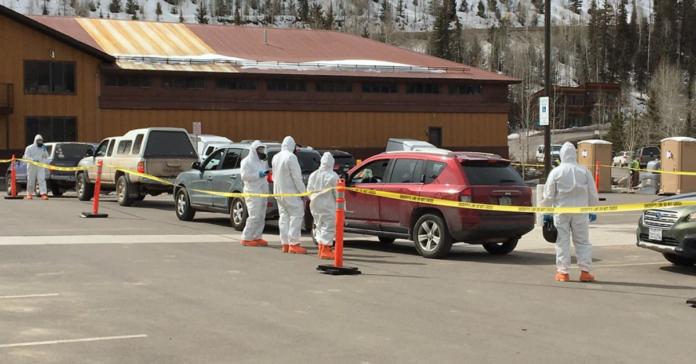The Colorado Department of Public Health and Environment (CDPHE) released a highly-anticipated report on Thursday that showed there are not serious, long-term health impacts to residents living near oil and gas operations including no links to cancer.
The report was outsourced by the state to consulting firm ICF International and builds on previous work done by Colorado State University and state officials from the past four years.
It was originally intended to be released in the summer of 2018 ahead of a contentious election that featured the Prop 112 ballot initiative and a busy legislative session in the spring of 2019 that saw the passage of SB 181.
Western Wire has previously covered the continued delays by the state in releasing the report.
Anti-oil and gas political leaders and activists did jump on one section of the report that stated there is a low risk for short-term health effects for residents living near operations.
But it was quickly clarified those risks might be elevated only during a very specific combination of events involving extreme conditions and under worst-case scenarios during the final stage of operations.
A previous study from CDPHE found “all measured air concentrations were below short- and long-term ‘safe’ levels of exposure for non-cancer health effects, even for sensitive populations. Overall, available air monitoring data suggest low risk of harmful health effects from combined exposure to all substances.”
An accompanying summary document from CDPHE also acknowledged significant shortcomings in the report.
“The study is not based on actual health impacts people have reported from oil and gas operations or on measured concentrations in the air surrounding the well pad,” and “does not definitively dictate a setback that is protective of public health,” it stated.
Nevertheless, Colorado Oil & Gas Conservation Commission Director Jeff Robinson said the regulatory body will give increased scrutiny to permits within 2,000 feet of occupied buildings.
At a press conference responding to the report, Colorado Petroleum Council President Lynn Granger and Colorado Oil & Gas Association President Dan Haley touted the findings showing no major health impacts and pushed back on activists using the report to call for a moratorium on new permits.
“That’s why we’re pleased to see this study bear out previous health studies to say what we’ve said all along that there are no long-term health impacts related to oil and gas development,” Haley said.
Granger pointed to previous work done by CDPHE that’s showed similar results.
“There has been eight assessments that CDPHE has conducted themselves that use air monitoring since 2017. All eight found no implications, no adverse, acute health impacts,” Granger said.
Joining Haley and Granger were toxicologists Dr. Mike Lumpkin and Dr. Tami McMullin. McMullin previously worked at CDPHE and was a chief author of some of the earlier health reports.
Lumpkin complimented the work of ICF in assembling the report but stated certain shortcomings with the research.
“This paper has done a really nice job at looking at a number of factors and it has given us some direction to go look into with regard to potential health effects. But it has not identified actual health effects,” he said.
Likewise, McMullin pointed to findings in the report showing the continued safe practices of the industry.
“There are lot of findings in this study that need to be highlighted in the sense that long-term, chronic health risks to people living near oil and gas, say even at 500 feet and even closer in many of the circumstances, is below the health guideline levels.
It’s not exceeding, there is not health risks related to long-term exposures to people living near oil and gas,” McMullin said. “I think there is a lot of really great information out of this, really positive information that’s finally concluding that we don’t see these long-term effects and anticipate those that have been questioned for a long time in the industry,” she concluded.
Senate Majority Leader Steve Fenberg, a key author of SB 181, called on the COGCC to halt issuing new permits within 2,000 feet of occupied buildings until the law’s rulemaking concludes, but Robbins said the commission won’t take that step.

